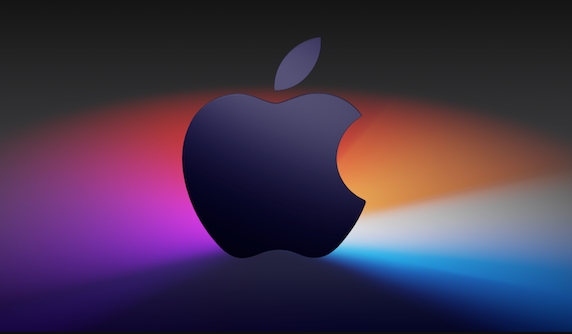How to enable hot angles on your Mac? 1. Open the system settings and enter "Desktop and Dock"; 2. Click the "Hot Corner" button; 3. Assign actions to each corner from the drop-down menu, such as Mission Control, desktop, screen saver, etc. Hot corners are the corners of the screen that trigger specific actions by mouse movement, suitable for quick access functions and save time. It is recommended to avoid the same diagonal setting operation when using it. Multiple monitors need to maintain consistent settings. If you frequently touch mistakes, you can set them to "none" or change corners. To turn off, just set the operation in the corresponding corner to "None".

Turning on Hot Corners on your Mac is a quick way to trigger Mission Control, Desktop view, screen saver, and more with just a mouse movement. It's handy if you want fast access without using keyboard shortcuts. Here's how to set it up.

What Are Hot Corners and Why Use Them?
Hot Corners are areas in each corner of your screen that activate specific actions when you move your mouse pointer into them. They're useful for quickly switching desktops, showing the desktop, launching Mission Control, or starting the screen saver. If you're someone who uses multiple apps at once or likes to keep things tidy, Hot Corners can save you time and clicks.

How to Enable Hot Corners on macOS
To set up Hot Corners:
- Go to System Settings (or System Preferences on older macOS versions)
- Click on Desktop & Dock
- Scroll down to find the Hot Corners button and click it
From there, you'll see four corners listed. For each one, you can choose an action from a dropdown menu like:

- Mission Control
- Application Windows
- Desktop
- Screen Saver
- Lock Screen
- Notification Center
- Dashboard
You can assign different actions to each corner based on what makes sense for your workflow.
Tips for Using Hot Corners Effectively
Some setups work better than others depending on how you use your Mac:
- Avoid putting the same action in opposite corners — it might get confusing
- Use “Desktop” in one corner if you frequently minimize windows
- Try “Mission Control” in another corner to manage desktops and full-screen apps
- If you have a multi-monitor setup, Hot Corners work on all displays, so be consistent across screens
Also, if you accidentally trigger a Hot Corner too often, consider changing that corner's action to "None" or picking a less-used corner for that function.
Turning Off Hot Corners When You Don't Need Them
If you ever want to disable a Hot Corner, just go back to the settings and select None from the dropdown for that corner. You don't need to turn off all of them at once — only the ones that aren't working for you anymore.
That's basically all there is to it. Not complicated, but definitely useful once you get the hang of it.
The above is the detailed content of How to set up Hot Corners on Mac. For more information, please follow other related articles on the PHP Chinese website!

Hot AI Tools

Undress AI Tool
Undress images for free

Undresser.AI Undress
AI-powered app for creating realistic nude photos

AI Clothes Remover
Online AI tool for removing clothes from photos.

Clothoff.io
AI clothes remover

Video Face Swap
Swap faces in any video effortlessly with our completely free AI face swap tool!

Hot Article

Hot Tools

Notepad++7.3.1
Easy-to-use and free code editor

SublimeText3 Chinese version
Chinese version, very easy to use

Zend Studio 13.0.1
Powerful PHP integrated development environment

Dreamweaver CS6
Visual web development tools

SublimeText3 Mac version
God-level code editing software (SublimeText3)
 How to Remove Old Devices from Apple ID on Mac
Jul 07, 2025 am 09:08 AM
How to Remove Old Devices from Apple ID on Mac
Jul 07, 2025 am 09:08 AM
If you've owned multiple Apple devices over the years, you might find yourself in a situation where some of those older Macs, iPhones, iPads, or other Apple hardware have been sold, given away, or traded. No matter how they left your possession, it's
 How to use a Windows keyboard on a Mac
Jul 08, 2025 am 12:12 AM
How to use a Windows keyboard on a Mac
Jul 08, 2025 am 12:12 AM
When typing on a Mac using a Windows keyboard, the Win key corresponds to the Command key and the Alt key corresponds to the Option key; 1. Understand the key mapping: The Win key replaces the Command key for commonly used shortcut keys such as Command C/V, the Alt key replaces the Option key for special symbol input, and the right Alt key may be mapped to Control or other functions; 2. Adjust the keyboard mapping can be customized through system settings or third-party tool Karabiner-Elements; 3. In terms of function keys and multimedia key support, the F key needs to be used with the Fn key, the default brightness and volume function can be adjusted, and some brand shortcut keys are incompatible and need to be customized; 4. Common shortcut key comparison includes copy and paste.
 How to change the default mail app on Mac
Jul 13, 2025 am 01:41 AM
How to change the default mail app on Mac
Jul 13, 2025 am 01:41 AM
The default mail application of Mac can be changed to Outlook, Spark and other clients. The specific steps are as follows: 1. Open "System Settings" or "System Preferences" and enter the "Default Application" section; 2. Select the target mailbox application in the "Email" column; 3. If the target application is not displayed, check whether it supports mail protocol binding, try to restart the application or update the version; 4. Test whether the change is effective, click the web email link to confirm whether the pop-up application is the target client. Complete the above steps to successfully switch the default mailbox.
 How to Reopen Closed Tabs on Mac? How to Restore Them on macOS?
Jul 08, 2025 am 09:41 AM
How to Reopen Closed Tabs on Mac? How to Restore Them on macOS?
Jul 08, 2025 am 09:41 AM
To reopen closed tabs on Mac, launch Safari and navigate to the History menu. Then select either Reopen Last Closed Tab, Reopen Last Closed Window, or click on Recently Closed to restore all tabs from your previous browsing session.Common reasons to
 See Sports Scores in the Mac Menu Bar with MenuScores
Jul 12, 2025 am 09:27 AM
See Sports Scores in the Mac Menu Bar with MenuScores
Jul 12, 2025 am 09:27 AM
For Mac users who are also sports enthusiasts, there’s a handy little free application known as MenuScores. This app displays the game of your choice directly in the menu bar, making it easy to monitor scores or upcoming game times with just a glance
 Contacts App Missing All Contacts on Mac? Here’s the Fix
Jul 12, 2025 am 09:31 AM
Contacts App Missing All Contacts on Mac? Here’s the Fix
Jul 12, 2025 am 09:31 AM
Some Mac users have noticed that their Contacts app occasionally loses all contact information, leaving the entire address book empty. While this situation is definitely concerning, there's a bright side — in most cases, it’s an easy fix, and your co
 How to share my Mac's screen
Jul 14, 2025 am 01:18 AM
How to share my Mac's screen
Jul 14, 2025 am 01:18 AM
To share your Mac screen with others, you can choose the appropriate method according to different scenarios. First, through video conferencing tools such as Zoom, click the "Share" button to select the screen or a specific window for sharing; second, use Messages or FaceTime to initiate a screen sharing session, click the " " to select "Screen Sharing" and invite the other party to view or control it; third, use the "Screen Sharing" App that comes with the system to enable this function on the target Mac and connect to the server address through Finder to achieve remote access; in addition, you need to pay attention to details such as permission settings, privacy protection and network performance impact.
 How to Move Files from Mac to External Hard Drive? How to Transfer Them?
Jul 12, 2025 am 09:25 AM
How to Move Files from Mac to External Hard Drive? How to Transfer Them?
Jul 12, 2025 am 09:25 AM
How to transfer files from Mac to external hard driveWhen moving files, you physically remove them from their original location. Copying files, meanwhile, preserves the original file location—pasting a second version to






